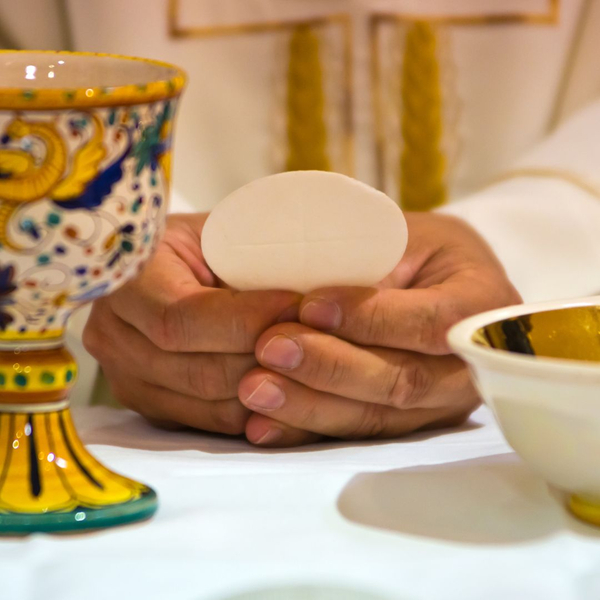The Basics of Catholic Annulments: What You Need to Know
While divorce is commonly understood, the concept of annulment in the Catholic Church may seem enigmatic to some. In today’s article from Catholic Annulment - Another Chance, we explore the basics of Catholic annulments, shedding light on what they are, the grounds for annulment, the annulment process, and their effects. Whether you're contemplating seeking an annulment or simply curious about this aspect of Catholic doctrine, we’ll provide you with the essential information you need to understand the process. Read on to learn more about Catholic annulments and gain clarity on an often complex and misunderstood subject.

What Is a Catholic Annulment?
A Catholic annulment is a declaration by the Catholic Church that a marriage was invalid from the beginning. It is an ecclesiastical process that does not dissolve a marriage but rather declares that it never existed in the eyes of the Church. Unlike divorce, which ends a valid marriage, an annulment examines the foundation of a marriage to determine if it met the necessary criteria for a sacramental union.

Grounds for Annulment
The Catholic Church recognizes several grounds for annulment, which are circumstances that may indicate that a marriage was invalid from the start. We recommend Chapter 3 of the book “Annulment: The Wedding That Was” for a complete list of these grounds with case examples.
A general understanding of these grounds would include issues such as:
Lack of Intention to Marry for Life: If one or both parties did not have the intention to enter into a lifelong commitment, the marriage may be considered invalid. This could involve cases where one party had undisclosed doubts or the intent to end the marriage in the future.
Lack of Consent: For a marriage to be valid, both parties must freely and fully consent to it. If either party was forced, coerced, or under duress at the time of the wedding, their consent may be deemed invalid.
Impediments: An impediment can be a legal or canonical reason that prevents a valid marriage. Examples include an existing valid marriage, a close blood relationship, or a prior religious commitment that has not been resolved.
Fraud: If one party deliberately concealed or misrepresented important information about themselves or the marriage, such as their infertility, addiction issues, or criminal history, it may constitute grounds for annulment.
Lack of Mental Capacity: If either party lacked the mental capacity to understand the nature and responsibilities of marriage or to give free and voluntary consent, the marriage may be invalid. This can include cases of severe mental illness, intellectual disabilities, or intoxication.
It is important to note that each case is evaluated individually, and the presence of one or more of these grounds does not automatically guarantee a declaration of nullity. The tribunal thoroughly examines the evidence and testimonies provided by both parties involved, as well as any supporting documentation or witness statements.

The Annulment Process
The annulment process typically starts with an application, in which the petitioner (the person seeking the annulment) provides relevant information about the marriage, such as the names of the spouses, the date and location of the wedding, and a brief account of the reasons for seeking an annulment. Supporting documents, such as marriage certificates and testimonies from witnesses, may also be required.
Once the application is submitted, the tribunal begins a thorough investigation and evaluation of the marriage. This may involve interviewing the parties involved, gathering statements from witnesses, and reviewing any documentation provided. The process can be lengthy and may vary in duration depending on the complexity of the case and the workload of the tribunal.
If the tribunal determines that the grounds for annulment are met, a declaration of nullity is issued. This means that the Church has determined that no sacramental marriage existed between the parties.

Effects of Annulment
Once an annulment is granted, both parties are considered free to marry in the Catholic Church. It also allows for the possibility of receiving the sacraments, such as the Eucharist. However, it's important to note that an annulment does not affect civil divorce proceedings, custody arrangements, or financial settlements, which are handled separately by civil authorities.
Work With an Annulment Attorney
Catholic annulments are a unique aspect of the Church's teachings and can provide individuals with the opportunity to seek clarification on the validity of their marriage. Understanding the basics of Catholic annulments is crucial for those navigating this journey.
While seeking an annulment is a personal decision, it is highly recommended to consider the guidance and expertise of an experienced annulment attorney. They can provide legal counsel, assist with the complex paperwork and necessary documentation, and navigate the intricacies of the annulment process. If you are seeking support and guidance throughout your annulment journey, we invite you to contact Catholic Annulment - Another Chance. Our experienced team will be by your side, providing compassionate guidance and assistance every step of the way. Don't hesitate to reach out to us today and explore the possibility of a fresh start through the annulment process.
